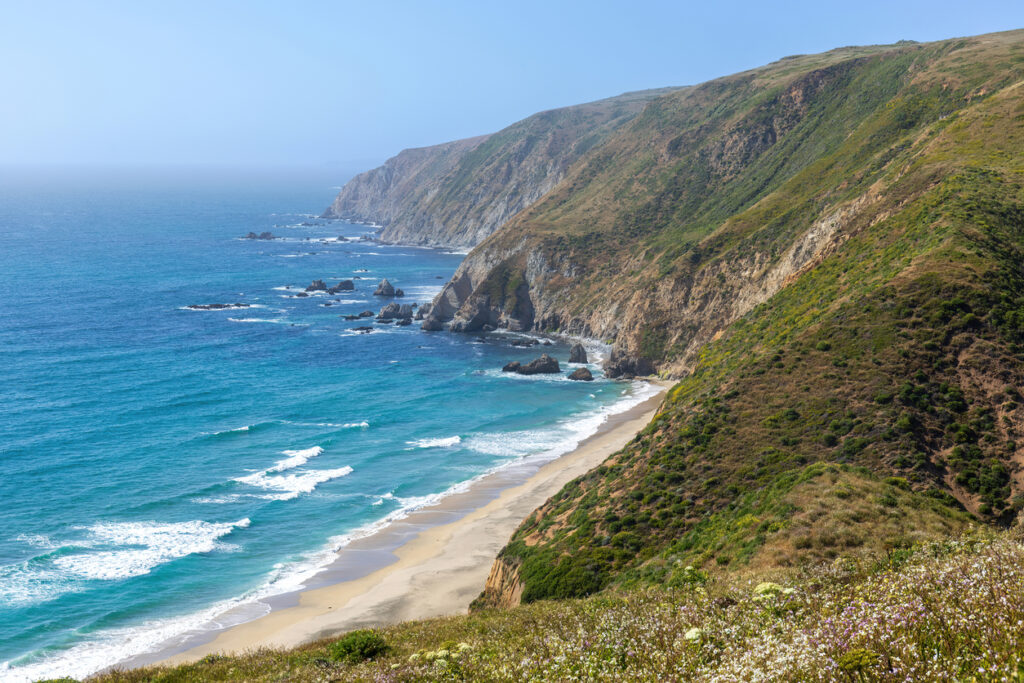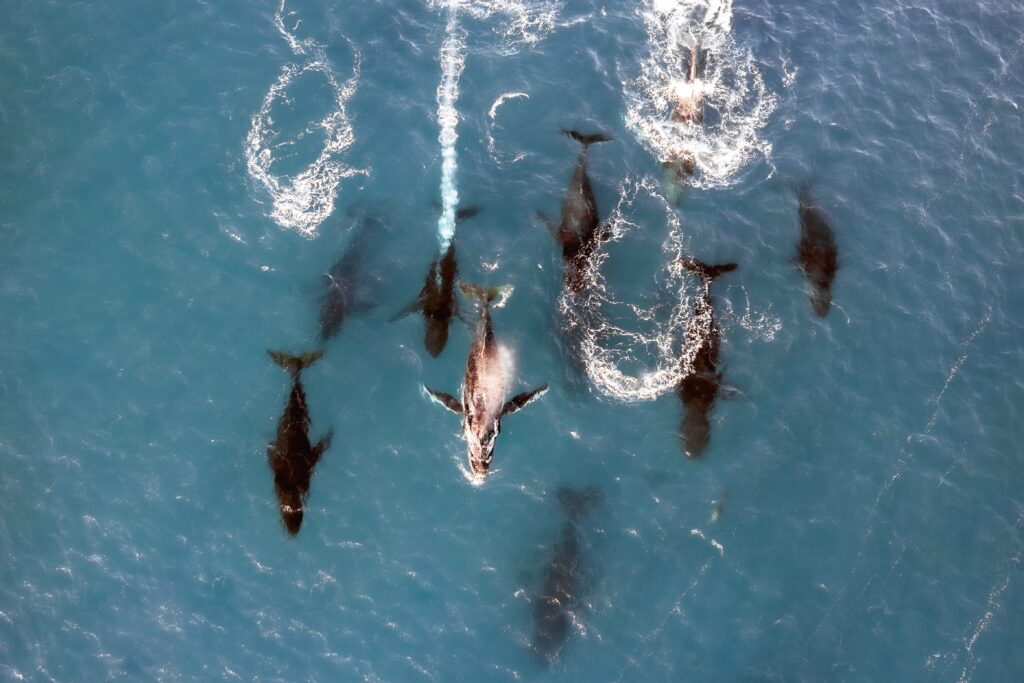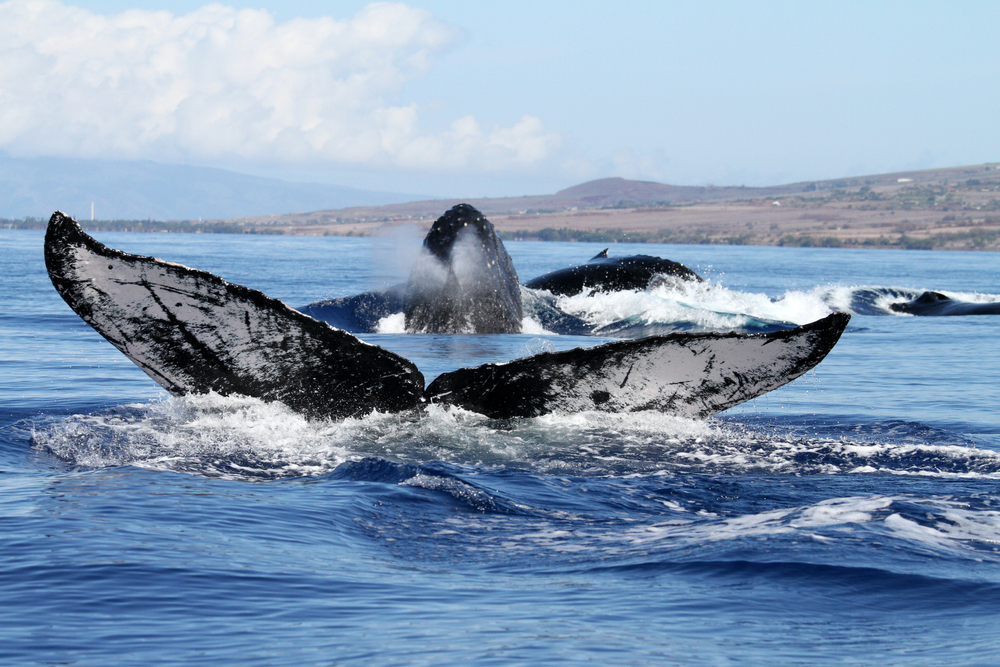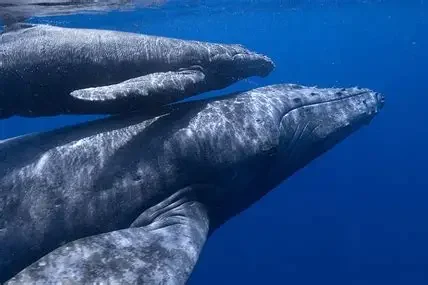A Sudden and Strange Silence

During a marine heat wave known as The Blob from 2014 to 2016, blue whale songs nearly disappeared across a vast stretch of the Pacific, reaching from California to Alaska. Researchers tracking underwater microphones were stunned when the haunting calls simply stopped. These deep and rhythmic sounds are vital for communication and finding mates, yet for months the ocean floor carried no trace of them. The silence was unsettling, almost as if the largest animals on Earth had chosen not to speak. It left scientists wondering what force was powerful enough to quiet such mighty voices.
Blue Whales Went Quiet for Nearly a Year

Blue whales, often described as the loudest animals in existence, reduced their vocalizations to near silence during the height of the heat wave. These booming voices, usually strong enough to carry across entire ocean basins, faded almost completely. For nearly a year, the soundscape of the sea was missing its most iconic chorus. Slowly, their songs began to return, but the gap in vocal activity was remarkable. No other whale species in the same waters showed such a dramatic change. It seemed to be something uniquely affecting blue whales, raising questions scientists could not yet fully answer.
Scientists Think Warming Waters May Be to Blame

The leading explanation points to warming seas, which are becoming more frequent and severe with climate change. Blue whales depend on vast supplies of krill, and unusual water temperatures can disrupt that food chain. If feeding grounds shifted or dwindled, whales may have altered their migration paths. In turn, they may not have needed or been able to sing in the same way. Some researchers suggest the silence reflected stress or survival choices. When their environment changes so drastically, even behaviors as essential as singing can be interrupted, showing how sensitive whales are to ocean instability.
But Not Everyone Is Convinced Its Climate Alone

Not all researchers are ready to point the finger solely at climate change. Whale songs naturally vary from one year to the next, and scientists know that other factors influence vocal activity. Some suggest shifts in prey distribution, while others point to human activity, such as the constant hum of shipping traffic, which may interfere with whale communication. The truth is likely more complex than a single explanation. Correlation is not always causation, and the blue whales’ sudden quietness may have resulted from overlapping conditions. That uncertainty leaves room for further investigation into the ocean’s mysteries.
Other Whale Species Didn’t Stop Singing

What puzzled researchers even more was that other whale species kept singing through the same period. Humpbacks, fin whales, and others who shared the waters did not fall silent. Their vocalizations carried on, proving that the change was not a universal response to warming seas. This contrast points to the possibility that blue whales have a unique vulnerability or that their behavior responds to factors not affecting others. It shows how even closely related species can react differently to challenges. That difference deepens the mystery of why only the blue whales stopped their songs so dramatically.
The Bigger Concern: What Happens Next

Even if climate change was not the sole reason behind the silence, the pattern is unsettling for the future. Marine heat waves are no longer rare events, and each one has the potential to disrupt life in the ocean. Blue whales are already endangered, and when behaviors like singing vanish, it raises difficult questions about resilience and survival. If these giants are struggling, it signals broader problems for marine ecosystems. The silence may have been temporary, but it is a warning about what continued environmental stress could mean for the health of the seas ahead.
Why Whale Songs Matter More Than Ever

Whale songs are not just haunting sounds drifting through the ocean. For blue whales, they are lifelines, connecting individuals across thousands of miles. These songs help them find mates, claim territory, and stay together in vast waters. When those voices fall silent, the loss is more than emotional. It could mean whales are losing critical ways of surviving and thriving. Their silence becomes our message too, a sign that something deeper is happening in the ocean. If the world’s largest creatures are struggling to be heard, perhaps it is time we truly start listening.
This story Blue Whales Fell Silent for Nearly a Year and No One Knows Why was first published on Daily FETCH


